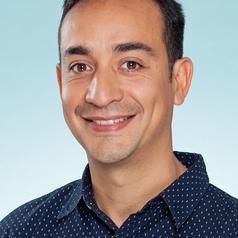
Jose S. Romeo
Senior Research Officer and Statistician, Massey University
PhD in Statistics (2000 University of Sao Paulo, Brazil)
Lecturer (2005-2015 Department of Mathematics, University of Santiago, Chile)
Post-doctoral Research Fellow (2012-2015 Department of Statistics, University of Auckland)
Statistician/Senior Research Officer (2016-now SHORE & Whariki Research Centre, Massey University)
I'm a researcher in Statistics specialised in multivariate survival analysis and interested in applying statistical models for decision making in public health and social sciences. 23 years of research experience and 41 scientific publications.
Less ![]()
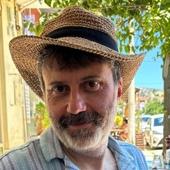
José Vela Castillo
Profesor de Teoría, Historia y Proyectos de Arquitectura de la IE School of Architecture and Design, IE University
Less ![]()

José-Manuel Rey
Profesor de la Facultad de Ciencias Económicas y Empresariales, Universidad Complutense de Madrid
José-Manuel Rey es doctor en Matemáticas con premio extraordinario por la Universidad Complutense de Madrid (UCM) y Profesor Titular del Departamento de Análisis Económico de la UCM. Ha sido profesor visitante en la Universidad Politécnica de Madrid, en varias universidades de Reino Unido y en la Universidad de Harvard, donde es investigador asociado con el departamento de Psicología. Ha publicado artículos de investigación de impacto en áreas diversas: matemáticas, ciencias de la Tierra, y ciencias sociales. Ha sido conferenciante invitado en numerosas ocasiones en centros de investigación y universidades, entre ellas Harvard, Cambridge, St. Andrews, University College London o el Politécnico de Milano. Ha recibido en dos ocasiones el premio de divulgación Plus New Writers Award de la Universidad de Cambridge. Es coautor del cortometraje de ficción “1+1” (2017), premiado en festivales de Nueva York y Australia. Colabora en radio y prensa como divulgador científico.
Less ![]()

José-Miguel Tejero
Arqueólogo especialista en Prehistoria. Investigador Senior Ramón y Cajal, Universitat de Barcelona
Less ![]()
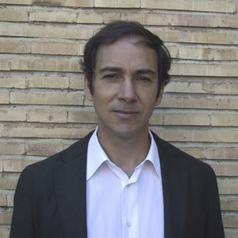
Joseba K. Fernández Gaztea
Profesor contratado doctor de Derecho administrativo, Universidad de Navarra
Ejercí en el despacho de abogados Clifford Chance, soy MSFS (Master of Science in Foreign Service) por Georgetown University, doctor en Derecho por la Universidad de Navarra; a lo largo de mi carrera académica he completado dos estancias de investigación en la Westfälische Wilhelms-Universität de Münster.
Less ![]()
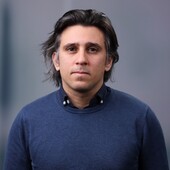

Josefa Henriquez
Phd Candidate (Economics), University of Newcastle
Josefa Henriquez is an economist, currently a Phd Candidate and Casual Academic at the University of Newcastle (Australia). She was formerly an advisor in the Minister’s Cabinet at the Ministry of Health of Chile, where she focused on the development of the health insurance reform act. Josefa’s research has concentrated on health economics and has several scholarly publications in A-ranked journals. She contributed to the publication of the Chilean chapter of the book ‘Risk Adjustment, Risk Sharing and Premium Regulation in Health Insurance Markets’ 2018, Elsevier.
Less ![]()

Josefina Echavarria Alvarez
Professor of the Practice in International Peace Studies, University of Notre Dame
Dr. Josefina Echavarría Alvarez is Professor of the Practice and the director of the Peace Accords Matrix (PAM) program at the Kroc Institute for International Peace Studies, part of the Keough School of Global Affairs. Josefina is also a faculty fellow of the Pulte Institute for Global Development and serves as a faculty advisor for the Afghanistan Program for Peace and Development program at the University of Notre Dame.
As the director of PAM, she leads the Barometer Initiative in Colombia, which carries out official monitoring of implementation of the 2016 Final Agreement between the government and the former FARC-EP. Josefina also directs the Legacy Project for “Preserving and Engaging the Digital Archive of the Colombian Truth Commission", which guarantees continued access to more than 200,000 files including audiovisual, non-textual knowledge and digitized documents compiled by the Colombian Truth Commission about the country’s 52-year armed conflict to advance transitional justice, human rights and the centrality of victims.
She was previously co-director of the Research Center for Peace and Conflict at the University of Innsbruck and a Fellow at the University of Cambridge (United Kingdom) and Trinity College (Ireland). She has been a guest lecturer at numerous universities around the world on peacebuilding, peace education, gender, conflict analysis, and research methods. She has also managed diverse international cooperation projects in the fields of gender, citizenship, and curricular development for peace and conflict studies.
Josefina earned her Ph.D. in Peace, Conflict, and Democracy from the Jaume I University (Spain), an M.A. in Peace, Development, Security and International Conflict Transformation from the University of Innsbruck (Austria), and a B.A. in Government and International Relations from the University Externado (Colombia).
Less ![]()
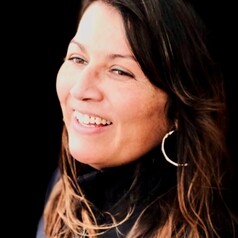
Joselynn Baltra-Ulloa
Senior Lecturer in Social Work - School of Social Sciences, University of Tasmania
Joselynn Baltra-Ulloa (Jos), is a Senior Lecturer in Social Work at the University of Tasmania. Originally from Chile, she came to Australia as a refugee and has dedicated her professional life to working with people of refugee background. Her work and research passions relate to decolonising social work, transformative disruptive social innovation, sustainability, regenerative social work practice and the scholarship of decolonising teaching and learning. She is amongst a group of Indigenous and First Nations scholars across the globe that conducts research with a decolonisation agenda and with a focus on learning from Southern knowledges. She is involved in community-based projects aimed at building capacity for decolonisation, exploring how a decolonising social work can play a key role in regenerative practices that enable the sustainable interbeing of Humans and Nature. She serves the community via focused interdisciplinary collaborations, facilitating cross-institutional and cross-cultural projects.
Less ![]()
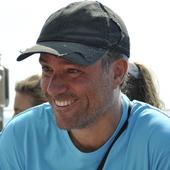
Josep Lloret
Investigador científico (senior researcher)., Instituto de Ciencias del Mar (ICM-CSIC)
Less ![]()
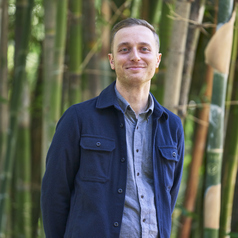
Joseph Curti
Ph.D. Candidate in Ecology and Evolutionary Biology, University of California, Los Angeles
Joseph Curti is a fifth year Ph.D. Candidate interested in applying whole-genome sequencing to California conservation management. Joey’s current research projects include 1) the impacts of long-term isolation and small population size on California red-legged frogs (Rana draytonii) in the Santa Monica Mountains, 2) the impacts of roads on the genetic health and population connectivity of California quail (Callipepla californica), and 3) population structure and signatures of local adaptation of the Yuma bat (Myotis yumanensis). He works closely with the National Park Service (Santa Monica Mountains), the California Department of Fish and Wildlife, the US Fish and Wildlife, and the California Conservation Genomics Project. For more information, visit Joey’s website (www.josephcurti.com).
Less ![]()

Joseph Dick
PhD Student in Sport Management, University of Guelph
I recently earned an MA from Brock University in applied health sciences, with a focus on sport management. Specifically, I researched the influences of LIV Golf on fans of the PGA Tour after the recent challenge to the PGA Tour's preeminent position with men's professional golf. Overall, my expertise surrounds strategies for sport organizations to garner and retain fan support. Along with finishing a masters focused on this area, I have completed industry research consulting with a professional sport organization to provide marketing recommendations based on my expertise relative to sport fandom. I am now beginning my PhD in management at the University of Guelph where I will continue to study sport fans further.
Less ![]()
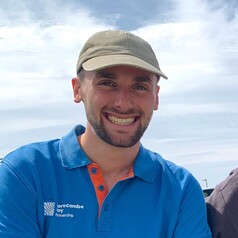
Joseph Earl
PhD Candidate, Lancaster Environment Centre, Lancaster University
My research is focussed upon public engagement, specifically in the field of citizen science, where I am working to establish Coast Watchers, an initative that aims to use citizen collected data to monitor coastal change at Cleveleys on the Fylde Coast, Lancashire. The key challenge is how we can use citizen science to better understand, communicate and prepare for coastal hazards across both the scientific and public communities.
The project is currently considering the value and importance of coastal blue space in the Fylde region, reflecting on the impact of the Coronavirus pandemic upon how people interact with and experience coastal space.
Less ![]()

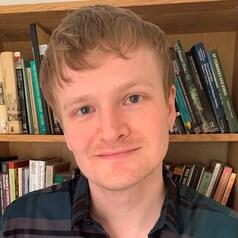
Joseph Harley
Senior Lecturer in History, Anglia Ruskin University
Joseph Harley is an expert in the history of poverty over the early modern, Georgian and Victorian periods and researches the topics through myriad approaches including consumption, welfare, material culture and social relations. Joseph also researches human-animal relationships (especially with dogs) and the lives of people who lived in workhouses, especially, c. 1690-1834.
He has published a number of articles on these themes and three books. His book, 'At Home with the Poor: Consumer Behaviour and Material Culture in England, c. 1650-1850', was published with Manchester University Press in 2024. He has also recently finished co-editing 'Objects of Poverty: Material Culture in Britain from 1700' for Bloomsbury, which will be published in summer 2025.
Less ![]()

Joseph Hayes
Associate Professor, Psychology, Acadia University
I am an experimental psychologist with expertise in social-personality psychology. My research examines how people respond to threatening events.
Less ![]()

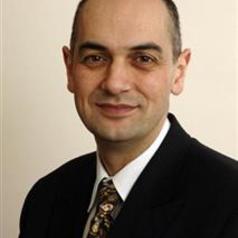
Joseph Ibrahim
Joseph is Head, Health Law and Ageing Research Unit, Department of Forensic Medicine, Monash University Victorian Institute of Forensic Medicine and contributes to the research and teaching activities of the Centre of Research Excellence in Patient Safety, Department of Epidemiology and Preventive Medicine. Joseph is also an Adjunct Professor, Australian Centre for Evidence Based Aged Care, La Trobe University, Faculty of Health Sciences.
Joseph has extensive clinical experience and continues an active role as a practising Consultant Physician in Geriatric Medicine and is the Clinical Director of the Subacute Services at the Ballarat Health Service.
In the early 2002, Joseph started researching the role of medico-legal death investigations for improving workplace, patient and resident safety and continues with a several projects examining quality of clinical care, quality of aged care, promoting dignity of risk, patient safety and human factors, performance indicators and effects of extreme heat on health in older persons. Currently, Joseph and his team investigating injury prevention for residents living in aged care services. The doctoral candidates with his Unit are investigating preventable deaths from suicide and resident-to-resident aggression; deaths from choking and; barriers to implementing dignity of risk.
He is the current editor of the Residential Aged Care Communiqué, the consultant editor for the Clinical Communiqué and a former regional editor for the International Journal for Quality in Health Care (2000-2004). Joseph continues to publish widely in international peer-reviewed journals and received media attention for research into premature deaths of nursing home residents and promoting risk taking for enhancing quality of life. Joseph has a personal website to promote discussion with the general public on issues we face with a growing ageing population (see web site www.profjoe.com.au).
Joseph has a Fellowship of the Royal Australasian College of Physicians (1994), obtained a Doctorate of Philosophy in Epidemiology and Health Services Research (1999 Monash investigating the relationship between quality of care and performance indicators), Fellowship of the Australian Faculty of Public Health Medicine (2000) and a Graduate Certificate in Higher Education (2001 Monash).
Less ![]()

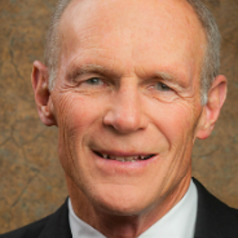
Joseph Kalt
Ford Foundation Professor of International Political Economy, Emeritus, Harvard Kennedy School
Joseph P. Kalt is Ford Foundation Professor (Emeritus) of International Political Economy. His research focuses on exploring the economic implications and political origins of the government regulation of markets. He also heads the Harvard Project on American Indian Economic Development. Kalt has published widely in the area of natural resources economics and policy. He is the author of The Economics and Politics of Oil Price Regulation; Federal Policy in the Post-Embargo Era, Drawing the Line on Natural Gas Regulation (with F.C. Schuller); What Can Tribes Do? Strategies and Institutions in American Indian Economic Development (with Steven Cornell); and a principle author of The State of the Native Nations (with the Harvard Project on American Indian Economic Development) and Rebuilding Native Nations (ed., Miriam Jorgensen). Kalt received his BA from Stanford University and his MA and PhD from the University of California, Los Angeles.
Less ![]()
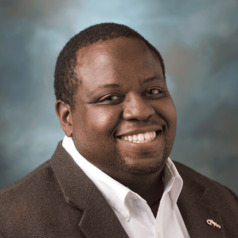
Joseph Larkin III
Associate Professor of Microbiology and Cell Science, University of Florida
My laboratory investigates the contribution of T lymphocyte subsets and functions in maintaining tolerance, with a specific emphasis on Tregs. We have examined the involvement of Tregs in the prevention of a number of animal models of human disease including type 1 diabetes, lupus, and rheumatoid arthritis. We are currently investigating mechanisms that control Treg function. One such mechanism could be the suppressors of cytokine signaling family of intracellular proteins (SOCS). SOCS proteins regulate cellular responsiveness to cytokines, which are proteins involved in cellular communication. Although it is known that certain cytokines are essential for Treg survival and function, how SOCS proteins contribute to this process are not well understood. One primary focus of our laboratory is to examine the interplay between Tregs and SOCS proteins.
Less ![]()

Joseph Lewnard
PhD candidate, Yale University
Infectious disease modeling; neglected tropical diseases; epidemiology
Less ![]()

Joseph Lindley
Senior Research Fellow, Lancaster Institute for the Contemporary Arts, Lancaster University
I am researching the emerging speculative design field of 'design fiction' using a 'research through design' approach. As such my doctoral research is 'researching design fiction, with design fiction'. In practice this means that I produce design fiction artefacts that relate to all kinds of other domains (e.g. HCI, artificial intelligence, empathy, crypto currency).
Less ![]()
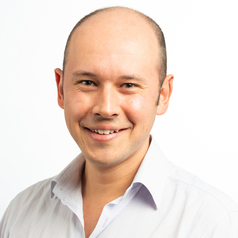
Joseph Lizier
Associate Professor of Complex Systems, University of Sydney
A/Prof. Joseph Lizier is a faculty member of the School of Computer Science at The University of Sydney, where he teaches into the University's Master of Complex Systems degree. His research studies the dynamics of information processing in biological and bio-inspired complex systems and networks, in particular for neural systems.
A/Prof. Lizier was awarded a PhD in Computer Science (2010), a BE (2000) and BSc (1998) from The University of Sydney. He has previously held postdoctoral positions at CSIRO and the Max Planck Institute (Leipzig, Germany), and worked in the telecommunications industry for 10 years, including at Seeker Wireless and Telstra Research Laboratories.
Less ![]()
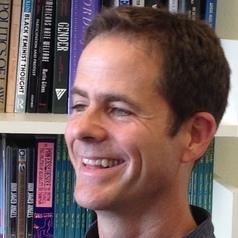
Joseph Lowndes
Associate Professor of Political Science, University of Oregon
Joseph Lowndes is an associate professor of political science. He is the author of “From the New Deal to the New Right: Race and the Southern Origins of Modern Conservatism,” co-editor of “Race and American Political Development.” He is currently writing a book on contemporary American populism. He has written for Jacobin, Counterpunch, Huffington Post, Talking Points Memo, and other online media. He teaches courses on US politics, racial politics, political culture, and American political thought.
Less ![]()
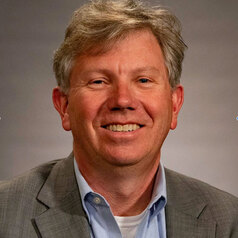
Joseph Madaus
Professor of Education, University of Connecticut
Dr. Joseph Madaus is a Professor in the Department of Educational Psychology in the Neag School of Education at the University of Connecticut. He is also Director of the Collaborative on Postsecondary Education and Disability. He is a Past President of the Division on Career Development and Transition, a division of the Council for Exceptional Children.
In 2007, Dr. Madaus received both the Teaching Promise and Teaching Innovation award from the University of Connecticut chapter of the American Association of University Professors. In 2008, he was named as a University Teaching Fellow, the highest teaching honor at the University of Connecticut. Dr. Madaus was a Distinguished Research Fellow in the National Institute on Disability and Rehabilitation Research Mary Switzer Fellowship program in 2003-2004. He currently serves on the editorial board of nine journals, including the Journal of Postsecondary Education and Disability, TEACHING Exceptional Children, and Career Development and Transition for Exceptional Individuals. He was named reviewer of the year for CDTEI in 2008 and 2011. He was the co-editor of Preparing Students with Disabilities for College: A Practical Guide for Transition. He is the Principal Investigator or Co-Principal Investigator on grants through the Office for Postsecondary Education, Office for Special Education Programs, the Institute of Education Sciences, and the State of Connecticut.
Less ![]()
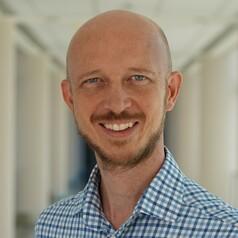
Joseph Millum
Senior Lecturer, Philosophy, University of St Andrews
I am bioethicist and philosopher working in the Department of Philosophy at the University of St Andrews. I serve as a consultant to the World Health Organisation and I am the Chairperson of the International Society for Priorities in Health. Prior to St Andrews, I spent 15 years at the US National Institutes of Health where I conducted research and worked as an ethics consultant in the Clinical Center hospital.
Less ![]()
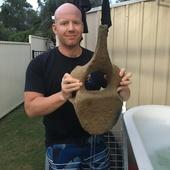
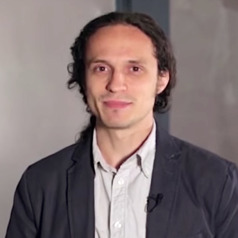
Joseph Orkin
Assistant Professor of Anthropology, Université de Montréal
Dr. Joseph Orkin studies the microbiomes and genomes of free-ranging primates. He completed Bachelor of Arts degrees in Anthropology and Philosophy from Penn State University in 2005, and earned his PhD in Anthropology from Washington University in St. Louis in 2014. He is currently a postdoctoral scholar in comparative genomics at the Universitat Pompeu Fabra in Barcelona on a Beatriu de Pinós Fellowship. Dr. Orkin's research examines how primates adapt to new and changing environments in China and Costa Rica. He also works with a wildlife conservation dog named Pinkerton to help track critically endangered apes.
Less ![]()

Joseph P. Laycock
Joseph P Laycock is an assistant professor of religious studies at Texas State University. He teaches courses on world religions, religion in America, new religious movements, and the intersection of religion and popular culture.
He is the author of several books including Dangerous Games: What the Moral Panic Over Role-Playing Games Says About Play, Religion, and Imagined Worlds (University of California Press, 2015) and The Seer of Bayside: Veronica Lueken and the Struggle to Define Catholicism (Oxford University Press, 2014). He is also a blogger for Religion Dispatches.
Less ![]()
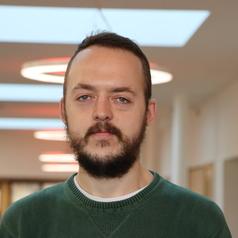
Joseph Powell
British Academy Postdoctoral Research Fellow, Faculty of Divinity, University of Cambridge
I studied Theology at the University of Exeter, before moving on to MPhil study in Theology (World Christianities) and then a PhD in Theology both at the University of Cambridge. I have now joined the Faculty of Divinity at Cambridge as a British Academy Postdoctoral Fellow, having previously served as a Lecturer at Birmingham Newman University and a Research Fellow at the University of Birmingham.
My primary research focus is Rastafari spirituality in the Caribbean and the UK. My recent PhD thesis explored Rastafari ecologies and ecotheologies through ethnographic fieldwork in St Lucia/Iyanola. This built on his MPhil research which explored contemporary dietary practices amongst Rastafari communities in Jamaica and the UK. I have has produced numerous journal articles, conference papers and encyclopedia entries on Rastafari, spanning the elemental language of Rastafari influenced music to Rastafari encounters with Covid-19. I also retain an active interest in the interaction between faith and football.
Less ![]()
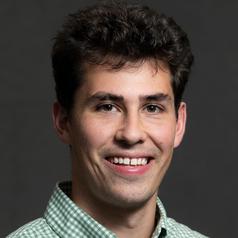
Joseph Sageman
Ph.D. Candidate in Sociology, Princeton University
Joe Sageman is a PhD candidate in the Princeton department of sociology. A former high school math teacher, Joe's research focuses on the relationship between educational systems and social inequality. His dissertation studies how schools, nonprofit organizations, and the student debt crisis shape students' postsecondary plans in Philadelphia. Some of his other projects have investigated the effects of school closures and school ratings algorithms on demographic change. He has a B.A. in political science from the University of Pennsylvania.
Less ![]()
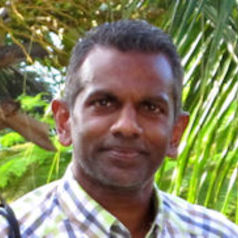
Joseph Savirimuthu
Joseph’s research principally involves analysing regulatory challenges and issues posed by new and emerging communication technologies for traditional approaches to governance. Some of the areas examined include issues such as surveillance, identity theft, child online safety, peer-to-peer file sharing controversies, online dispute resolution and managing personal and corporate identities.Joseph is now exploring the legal, ethical, social and technological challenges posed by autonomous systems and robotics as they relate to aging, healthcare and warfare.
Less ![]()

Joseph Schmidt
Professor of Human Resources and Organizational Behaviour, University of Saskatchewan
Dr. Schmidt’s research is focussed on understanding how strategy, human resource management, and leadership interact to influence employee behaviours and firm performance. He also studies the precursors of group effectiveness and the multilevel influences of group processes on individual and team outcomes. He has published research in a number of practitioner publications and scholarly journals including Personnel Psychology, Psychological Bulletin, Journal of Organizational Behavior, and Journal of Business and Psychology.
Prior to joining the Edwards School of Business in 2011, Dr. Schmidt worked in the Vancouver office for the global consulting firm Hay Group, specializing in talent management, performance management, and compensation. He worked in Human Resources for an engineering consulting firm in Calgary before pursuing graduate studies. He also completed a variety of consulting projects for clients in both the public and private sectors as a graduate student.
Less ![]()

Joseph Siev
Postdoctoral Fellow in Consumer Behavior, University of Virginia
I earned my PhD in Social Psychology from Ohio State working with Dr. Richard Petty in the Attitudes and Persuasion Lab (APL), and wrote a dissertation titled, "Attitudinal Ambivalence and Behavioral Extremism." I am currently a postdoctoral fellow in marketing at the University of Virginia's Darden School of Business.
Less ![]()
- Market Data





















